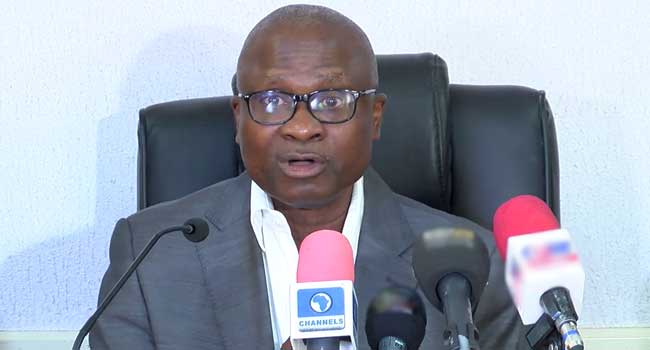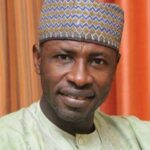By Hassan Zaggi
The former Commissioner for Health in Lagos State, Dr. Jide Idris, has identified leadership and governance as the major challenge hindering the speedy growth of Nigeria’s health system.
He disclosed this at a symposium organised by the Healthcare Transformation Coalition (HTC) with the theme: ‘Repositioning the healthcare sector: Creating the pathway to an effective health system’, in Abuja, weekend.
Dr. Idris who is the convener of the symposium explained that the HTC is a coalition of all members of the different health care professional groups in the health sector including doctors, pharmacists, laboratory scientists and all the rest, who, according to him, are stakeholders in the health sector.
He stressed that: “One of the basic problem in the health system is leadership and governance. It is a major problem. But people don’t understand what leadership and governance is.
“We cannot move forward without a proactive leader. A leader that has vision who knows what he wants to do. He has the ability to tell the people working around him to do the same thing. That was what Bola Ahmed Tinubu did in Lagos when he was governor.
“Apart from that, because of that foresight, he set up a governance structure, it is key. These are processes that will help you address the problems in the system. To provide solution, you have to have policies, plans, you have to have legislations, decision making processes and many things. These are things that are on ground that we need to build upon them and he created that culture of continuity.”
He revealed that the coalition is a professional group which is to support the implementation of policies and also to support political agenda in the health sector.
Dr. Idris explained that the HSC was brought together to be able to advice the incoming government appropriately on the right approach to take in building the health sector.
He said that “over the years, healthcare professionals have always reacted to health policies. The government set policies then we start reacting, if we don’t want the policies may be we start going on strike.
“We feel this time around, we should be involved in setting the health agenda because at the end of the day, health is very body’s business. Government has a role, professionals have a role and individuals have a role to play.
“Over the years, we always believe that government knows everything, that is not correct. Government are human beings, they are not healthcare professionals. So it is left for us the professionals to show the direction and tell them what to do or what we want done.
“Over the years, people shy away from this. We cannot get a good health sector if we don’t play the politics. This is essentially why we are here.”
On her part, the former Commissioner for Health, Borno State, Dr. Salma Anas Kolo, disclosed that when Kashim Shetima was governor of Borno state, he transformed the health sector despite the fact that the Boko Haram crisis was at its peak.
She noted that a lot can be learnt from the Borno experience and used to transform the health sector in the country.
According to her: “Borno state was an epicenter of crisis when Shetima was governor but he did everything possible to revamp and rebuild the health system.
“There is much we can learn from what Shetima did in Borno state because the leadership was resilient and resources was dedicated to capacity building of health workers including training of indigenous health workers who are back now and working in the health system in the state.
“A lot of can be seen in terms of leadership as of that time. Community and religious leaders were also involved that time in mobilizing and promoting healthcare services among the citizens. We were able to have a very resilient health system even though the crisis was still there.
“Another challenge that was prevalent during the peak of the crisis in Borno was gender based violence. Safe spaces were built and those who were sexually abused were provided psycho social counselling and treatment.
“There are a lot of lessons that we can learn from the Borno experience during the time of Gov Shetima in the health sector and replicate in the country without wasting much time.”
Responding to questions from Journalists, the Secretary of the HTC, Dr. John Okoh, said that all healthcare disciplines were represented from the 36 states of the federation and other members from Diaspora.
He explained that: “What we have is that, for the first time, the health family coming under one roof.
“We want to take the destiny into our hands, we want to ensure that health is given priority, we want to ensure we are not just reactive but participate in policy formation, we want to ensure that we drive the process so that we can actually monitor and evaluate the outcome.”
He, however, noted that the: “The coalition still has a lot to do. We will do mentoring for the younger ones, the coalition is aimed at instilling participatory discipline in every healthcare personnel.
“This coalition has come to stay, it will ensure that it makes government accountable in the health sector and we will keep monitoring and evaluating the outcome.”



